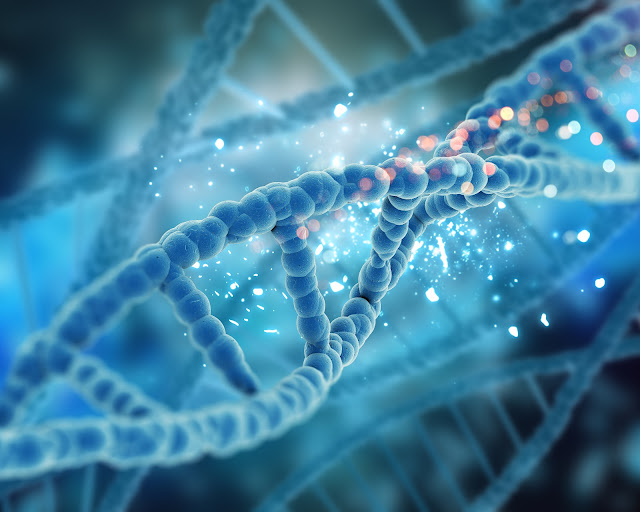The Role of Genetics in Dental Health: What's Inherited?
Dental health is an integral part of overall well-being, and
while lifestyle choices significantly impact it, the role of genetics cannot be
overlooked. Genetics play a pivotal role in shaping our dental health,
influencing factors ranging from tooth structure to susceptibility to diseases.
This comprehensive article explores the fascinating intersection of genetics
and dental health, shedding light on what aspects of our oral health are
inherited and how this knowledge can guide our dental care practices.
Understanding the Genetic Influence
the Basics of Genetics in Dental Health
Genetics, the science of heredity and the variation of
inherited characteristics, plays a crucial role in various aspects of our
dental health. Just as they determine the color of our eyes or hair, genes can
influence the development, structure, and overall health of our teeth and gums.
Areas Impacted by Genetics
Genetic factors can
influence several aspects of dental health, including:
Tooth Development and Structure: Genes can dictate the size, shape, and
alignment of teeth. Issues like overcrowding or gaps in teeth can be
hereditary.
Enamel Strength: Genetic variations affect enamel strength, impacting resistance to
cavities and decay.
Gum Health: Genetics
can play a significant role in the health of gums. Susceptibility to gum
diseases like gingivitis and periodontitis can be influenced by one's genetic
makeup. Certain genetic markers have been associated with increased risk of gum
disease, impacting how the body's immune system responds to bacteria in the
gums.Areas Impacted by Genetics
Genetic Conditions Affecting Dental Health
There are specific genetic conditions that directly impact
dental health. For example, Amelogenesis Imperfecta is a hereditary condition
affecting the development of the enamel, leading to weak and easily damaged
teeth. Another condition, Dentinogenesis Imperfecta, causes discoloration and
translucency in teeth, along with increased brittleness.
Interplay Between Genetics and Environment
Lifestyle and Environmental Factors
While genetics lay the groundwork for dental health,
environmental factors and lifestyle choices play a significant role in shaping
it. These include:
- Diet:
High-sugar diets can exacerbate genetically weak enamel, leading to
cavities.
- Oral
Hygiene Practices: Regular brushing and flossing can mitigate the risk
of genetically influenced gum diseases.
- Fluoride
Exposure: Adequate fluoride can strengthen enamel, even in those with
genetic vulnerabilities.
The Epigenetic Perspective
Epigenetics, the study of how behaviors and environment can
cause changes that affect the way genes work, is also relevant in dental
health. Epigenetic changes can influence the expression of genes related to
oral health, making the interplay between genetics and environment a dynamic
aspect of dental care.
Preventive Measures and Dental Care
Tailoring Dental Care to Genetic Profiles
Understanding one's genetic predisposition can lead to more
personalized dental care. For instance:
- Regular
Screenings: Those with a family history of gum diseases might benefit
from more frequent dental check-ups.
- Targeted
Treatments: Individuals with genetically weak enamel could be
prescribed high-fluoride toothpaste or treatments.
The Importance of Good Oral Hygiene
Regardless of genetic makeup, maintaining good oral hygiene
is paramount. This includes:
- Regular
Brushing and Flossing: Essential for removing plaque and preventing
decay.
- Regular
Dental Check-ups: Professional cleanings and check-ups can catch
problems early.
Advances in Genetic Testing
Genetic testing in dentistry is still in its nascent stages
but shows promise for future preventive strategies and treatments.
Understanding one’s genetic predisposition to certain dental issues can lead to
early interventions and more effective care.
Example: A Case Study
Consider the case of Emma, a young woman with a family
history of periodontitis. Despite diligent oral care, Emma developed gum
disease in her late twenties. A genetic test revealed a predisposition to
periodontitis, leading her dentist to recommend a specialized care plan. This
plan included more frequent cleanings, targeted treatments, and careful
monitoring, helping Emma manage her condition effectively.
Conclusion
In conclusion, genetics plays a significant role in dental health, influencing aspects from tooth structure to disease susceptibility. However, it is the interplay of these genetic factors with environmental influences and lifestyle choices that ultimately shapes our dental health. Understanding the genetic components can lead to more personalized and effective dental care. As research progresses, particularly in the field of genetic testing, the potential for tailored preventive strategies and treatments in dentistry is immense. Remember, while we may inherit certain dental traits, our daily practices and care routines remain key to maintaining optimal oral health.




Comments
Post a Comment